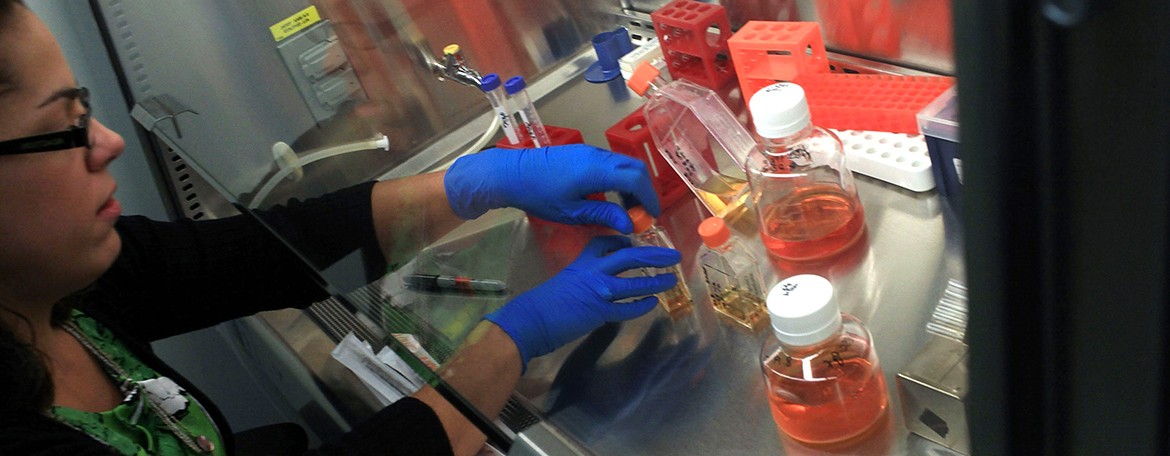
Faculty associated with the Systems Biology Area of Concentration explore complex biological systems using computational methods, machine learning, optical imaging and other quantitative approaches. Our program is designed to train students from diverse disciplinary backgrounds in the cutting-edge research techniques that comprise the interdisciplinary research of modern cell biology. Students are provided with rigorous cross-training in areas of mathematical, physical, and computational sciences and biology. Systems Biology students take courses, attend seminars and work on interdisciplinary research projects to broaden and strengthen their abilities to do quantitative cell biology research.
The Systems Biology area of concentration is based within the Richard D. Berlin Center for Cell Analysis and Modeling (CCAM) at UConn Health. Established in 1994, CCAM has emerged as a Center that promotes the application of physics, chemistry and computation to cell biology. The environment of CCAM is designed to promote interdisciplinary interactions and its cadre of physical scientists are supported and valued in a way that is unique for a medical school. CCAM is also the home of the Virtual Cell modeling and simulation software project (http://vcell.org) and COPASI software application for simulation and analysis of biochemical networks and their dynamics (http://copasi.org).
The program is particularly strong in the following areas of research:
Modeling & Simulations
- Data Driven Analysis and Simulation
- Modularity and Multistate Complexes
- Modeling Cellular Processes in Space and Time
- Agent-based Modeling
- Molecular Flux in Cellular Spaces
- Stochastic Modeling and Discrete Particles
Omics Analysis
- Pathway Analysis
- Gene regulatory Networks
- Gene Expression & Proteomics Analysis
- Large Scale Modeling
- Molecular Medicine
Optical Imaging
- Florescent Correlation Spectroscopy
- Optical Probe Development
- Non-linear Optical Microscopy
- Single Molecule Imaging
- Virtual Microscopy
Biophysics
- Biological Signaling Platforms
- Single Molecule and Particle Tracking
- Cytoskeletal Dynamics and Morphogenesis
Cell Biology
- Cellular Tissues and Development
- Signal Transduction
- Molecular Medicine
**Admissions Note**
The GRE General Exam is no longer required NOR considered for admission to the Biomedical Science PhD program.
The application for Fall 2025 will open in mid-September. The deadline for application, application fee, and supporting materials for Fall 2025 is December 1, 2024. For detailed application information, please visit our Admissions Process page.